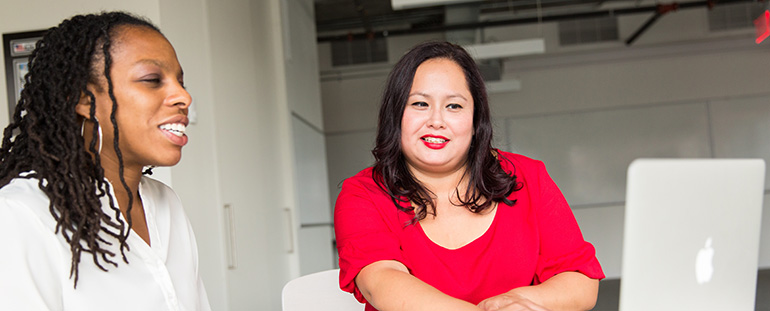
By Gayani R. Weerasinghe
“Mentorship and sponsorship are vital to a successful career. Mentors and sponsors have traveled the road to success and can provide valuable insight — ‘Don’t make the same mistakes I did.’ Having said that, we all make mistakes and a mentor or sponsor can be there to help you recover.”
— Hon. Randa Trapp, San Diego Superior Court
A mentor is a trusted advisor that is willing to give you advice and insights as to how to navigate a situation or achieve a goal. A sponsor, on the other hand, is someone who champions you in promotions and advancements within a profession, organization, or workplace. While this discussion can apply to both mentors and sponsors, as they both play an important role in your success, this article focuses more on cultivating the relationships with your mentors and why it matters for your long-term success.
Everyone needs a mentor! “No matter the level or status of your professional standing, it is certain that what got you here, won’t get you there. So, wherever you want to get to next, it is critical to your success that you have a brain trust — mentors. Mentors to help you chart your path and overcome the terrain. No one successful goes at it alone,” says India Jewell, Legal Head of Consumer Products at Sony Electronics.
Mentors can be found in a variety of settings and you do not need to limit yourself to one. I would recommend having multiple mentors to help you in different areas of your profession. An added benefit of multiple mentors is that you can get different perspectives, more targeted advice, and prevent creating a burden on your mentor’s schedule.
As Gayle Blatt, a Partner at Casey Gerry says, “It’s important for young lawyers to seek out mentors. Experience is the best teacher, and the right mentors can help you learn from their mistakes while providing encouragement as you chart your own path.”
To find such mentors, Brian Sun, the General Counsel for Sorrento Therapeutics, recommends community involvement. “Joining an affinity group allows you to build your network and seed opportunities. You gain access to a pool of mentors who are committed to providing guidance and fellowship that will open many doors for you. Planting these seeds means developing genuine relationships without any expectation other than to grow and learn — and this will lead to opportunities that surprise and reward you throughout your career,” says Sun.
Whether it is a formal mentor-mentee matchup by a professional group or an informal relationship through networking and your community involvement, make the time to get to know your mentor, their path to where they are, and their professional and volunteer work. Building mentor-mentee relationships organically is important, as you would want an authentic relationship and a genuine connection with your mentor.
Remember that mentors do not always need to be someone older. They can be a colleague in your own cohort or even someone younger. For example, one of my mentors is my younger sister, Bhashini Weerasinghe, who has been practicing law for over 10 years and had her own practice for over seven years. If they have more experience or have a skill set that you would like to grow, do not be shy. Reach out and ask for help.
Lastly, I encourage you to volunteer to be a mentor to someone else who is junior to you. This is a great way to not only give back, but gain another perspective on mentorship and how to be a better mentee to your mentors. As Maya Angelou said, “[W]hen you learn, teach. When you get, give.”
Gayani R. Weerasinghe, Esq., M.A., (gayani@lawgrw.com) is an Intellectual Property and Business Law attorney with her own practice. She is also the host of the YouTube Channel, Inventive Mind.